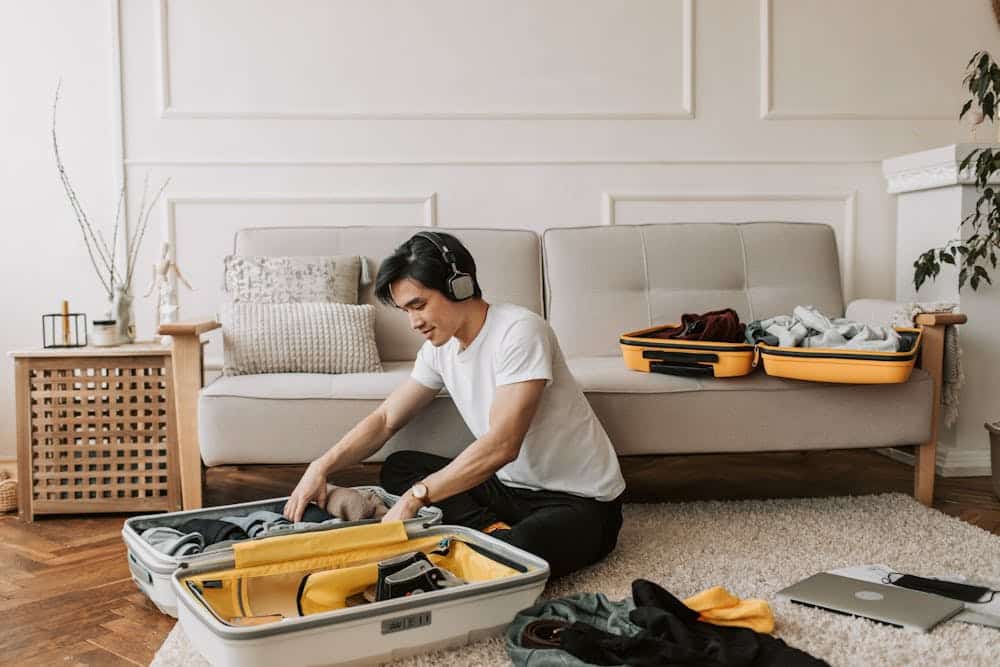Airbnb Insurance
Last updated: July 2025
In November 2021, Airbnb introduced a new, comprehensive insurance program called AirCover. This program replaced the previous Host Guarantee and Host Protection Insurance policies.
AirCover is designed to address the big concerns that hosts have, such as liability claims from a guest injuring themselves or property damage. While many property owners already have insurance in place, traditional policies often fail to cover the unique risks associated with short-term rentals.
AirCover provides a robust layer of protection specifically tailored for Airbnb hosts that promises peace of mind and confidence while managing their businesses. With this new program, Airbnb has made operating a short-term rental safer and easier than ever before. This section will explain everything you need to know about AirCover.
Disclaimer: Lodgify is an Airbnb Preferred+ Software Partner. This guide, including any claims or statements within, is solely from Lodgify and is not endorsed by, directly affiliated with, authorized, or sponsored by Airbnb in any way.
Don’t see the form to download our Airbnb Host Guide? Click here.
What is AirCover?
AirCover is Airbnb’s insurance program that’s designed to protect both hosts and guests. For hosts, it includes $3 million in damage protection. Additionally, the $1 million liability insurance provides coverage against claims of bodily injury or property damage made by guests or others.
Together, these features guarantee hosts have peace of mind knowing they are safeguarded against a wide range of potential risks. For guests, AirCover protects them against host cancellations, inaccurate listings, and check-in issues and mediates safety concerns.
AirCover’s damage protection for hosts
AirCover’s $3 million damage protection policy is designed to protect hosts against unintended damages caused by guests during their stay. Below is an overview of what the policy does and does not cover.
What is covered:
- Accidental damage to property: Reimbursement for repair or replacement of items damaged unintentionally by guests, such as furniture, cars, boats, and valuables
- Unexpected cleaning needs: Coverage for extra cleaning costs beyond normal wear and tear, such as deep stains or significant messes caused by guests or their pets
- Lost income: Hosts will receive some financial protection from the loss of future income if they have to cancel upcoming bookings due to damage caused by guests
What is not covered:
- Normal wear and tear: Routine maintenance issues or gradual deterioration of the property
- Damage caused by natural disasters: Issues arising from events like floods, storms, or earthquakes are excluded
- Loss of currency: If you keep physical currency in your rental, it isn’t protected
- Other limitations may apply

AirCover’s liability insurance
AirCover’s $1 million liability insurance is designed to protect hosts from unintentional damage to personal property or if a guest injures themselves. Below is an overview of what is covered and what isn’t under this insurance protection.
What is covered:
- Third-party claims of bodily injury: If a guest or another third party is injured on your property, this insurance can help cover related medical expenses and legal costs.
- Third-party property damage: If your guest accidentally damages a neighbor’s property or common areas in a building, this coverage can help address repair or replacement costs.
What is not covered:
- Intentional injuries or damage: Acts of harm or damage caused intentionally by your guests aren’t eligible for coverage.
- Damage to the host’s property: Claims related to damage to the host’s belongings or property are covered under the damage protection policy, not the liability policy.
- Other exclusions apply
How do I file a claim with AirCover?
Let’s break down the basics of how to file a claim for both the damage protection policy and liability insurance.
Filing a claim for the damage protection policy
To file a claim under the damage protection policy, follow these steps:
- Document the damage:
- Take clear photographs or videos of the damaged items or areas as evidence.
- Include detailed descriptions of the damage in your documentation.
- Submit your claim:
- Send a message to your guest through the Resolution Center to inform them about the damage and discuss a resolution.
- Ensure all communication is kept within the platform for record-keeping purposes.
- Claims typically must be submitted within 14 days of the guest’s check-out.

Filing a claim for liability insurance
If you need to file a claim under liability insurance, the process is slightly different:
- Submit the liability insurance intake form:
- The liability insurance intake form will ask for information about the incident, including any documentation or evidence you have.
- Fill out the form completely and submit it as soon as possible after the incident occurs.
- Provide additional information if requested:
- If the company requires further information or documentation, make sure to provide it promptly.
- Failure to provide requested information could delay your claim or result in a denial of coverage.
Is AirCover free?
Yes! AirCover is free for all Airbnb hosts. It’s automatically included in every booking, with no extra charges or need to opt in. That said, you can choose to opt out from the programming by emailing the Airbnb customer service team at epi-opt-out@airbnb.com.
Preventing incidents before they occur
Taking proactive measures to prevent incidents is essential for maintaining a safe and positive hosting experience. Here are some tips to help minimize risks:
- Screen your guests: Read reviews left by previous hosts and pay attention to any red flags.
- Set clear house rules: Establish clear and concise guidelines for your property and list them in your house rules. This can include noise restrictions, guest limits, and policies on smoking or pets.
- Inspect and maintain your property: Regularly check your property for potential hazards like loose railings, faulty appliances, or other safety issues. Address any maintenance concerns promptly.
- Provide safety features: Equip your property with safety essentials such as smoke detectors, fire extinguishers, and first-aid kits. Make sure these items are easily accessible and kept in working condition.
Don’t see the form to download our Airbnb Host Guide? Click here.